Description
People involved in Projects and Programs often have to interact with suppliers and customers. These relationships are normally driven by the existence of a contractual agreement between the two parties.
Understanding the essential characteristics of contracts and Contract Management will enable you to :
- source the products and services required by your project or your organisation more effectively,
- deliver more efficiently what you agreed with your customers, thus adding value to your organisation faster.
By being able to write clear Statements Of Work (SOW), you will have the capability to communicate your needs clearly to potential vendors, thus reducing the likelyhood of misunderstanding, dispute and litigation.
By being able to review existing SOW, not only will you be capable of identifying potentially ambiguous or even damageable agreements for your project or your organisation before committing to them, but also you will be in a position to draft a mutually beneficial counter-proposal, thus protecting your business and the long term relationship with your customers and suppliers.
Finally, by being able to monitor an existing agreement, you awill reduce the amount of unnecessary change and / or the number of claims submitted, thus enabling your project and your organisation to close contracts and move on to new projects faster.
Content
Module 1: Introduction, Fundamental concepts
- Welcome
- Housekeeping
- Trainer‘s introduction
- Participant introduction
- What is a contract ?
- What is Contract Management ?
- A typical contract life-cycle
- The various types of Contract
- Managing Risk through contract types
- Exercise: A nice supplier
Module 2: Contract Management activities during competition
- Purpose of Standard Terms and Conditions (Ts & Cs)
Applicable jurisdiction | Dispute resolution | Force Majeure - Purpose of a Statement of Work (SOW)
SOW | Key sections | Wording to be avoided | Effective wording - Case Study 1: Writing a SOW
- Case Study 2: Reviewing a SOW
Module 3: Contract Management activities during performance
- Fundamental rules of contract interpretation handling disputes though
Mediation | Arbitration | Litigation - Change Management: do‘s and don‘t‘s
- Change Management vs. Claim Management
- Case Study 3: Managing the contract
Module 4: Conclusion
- Summary
- Q & A
- Exam
- Course closeout
Objectives
- You will be able to define what a contract is and what the key components of a contract are.
- You will be able to understand what the various types of contract are.
- You will be able to use contracts as a mean of managing risks.
- You will be able to use existing standard contract terms (boilerplate contract).
- You will be able to draft a Statement Of Work (SOW).
- You will be able to review an existing SOW.
- You will be able to ensure a contract is legally enforceable.
- You will be able to understand what options are available to you in case of a dispute.
- You will be able to perform change management related to an existing agreement.
- You will be able to submit and/or manage claims related to an existing agreement.
Technical Requirements
- Computer / Tablet
- Internet access
- Microphone
- Webcam
- Internet-Browser (e.g. Chrome)
- Microsoft Teams App (recommended, but optional)
Comments
There are no pre-requisite for attending the Contract Management course. Although it would be beneficial for participants to be familiar with the concept of Projects and Project Management, it is by no mean mandatory. Similarly, no previous legal experience or legal background is required.
The Contract Management course uses a blend of lectures, individual exercises and group case studies to give people involved in Projects and Programs the skills, knowledge and tools they need to manage the contractual relationships between their Projects (or Programme) on one hand and their suppliers and customers on the other hand.



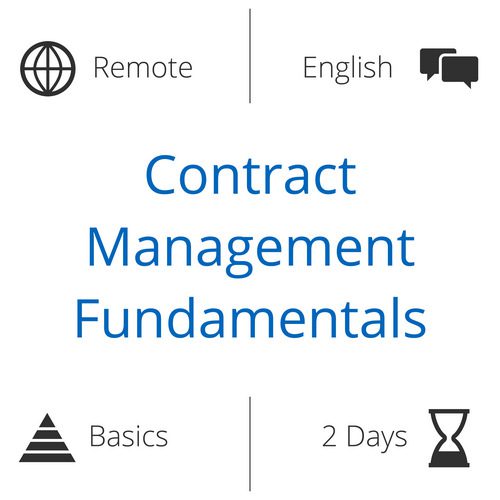
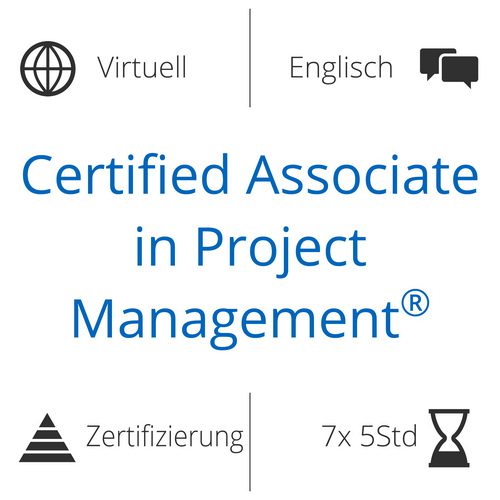
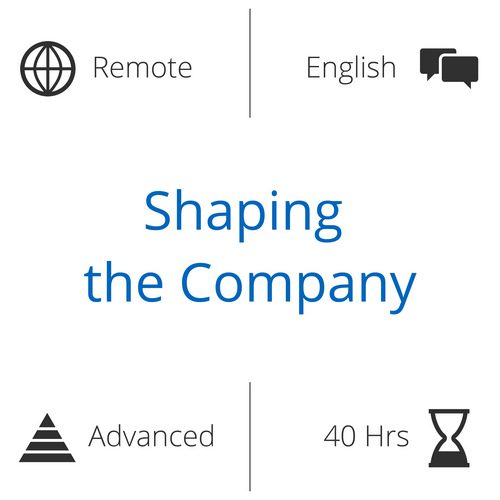
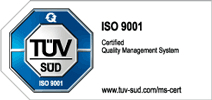

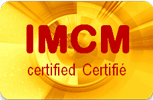




Reviews
There are no reviews yet.